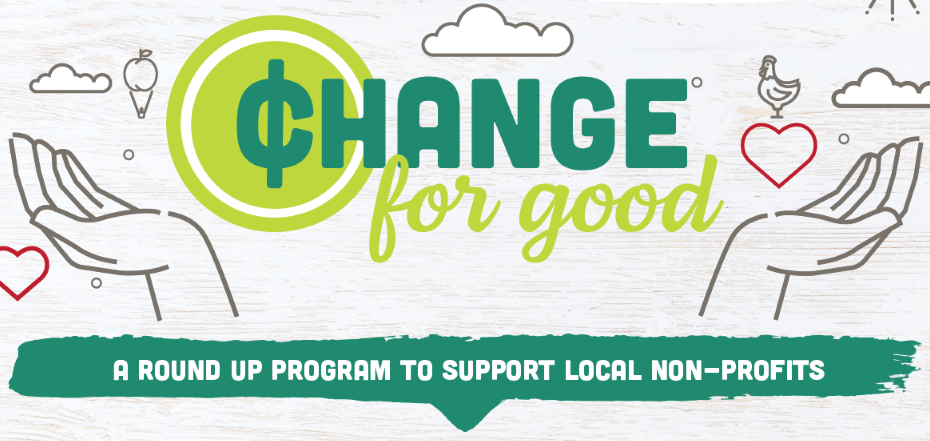
November Change for Good Partner: Vesper Meadow Education Program
November's Change for Good Partner is
Vesper Meadow Education Program
.png)
The Vesper Meadow Education Program is building a culture of land stewardship and nature connection. They demonstrate biocultural restoration through Tribal partnership, collaborating with a broad network for land stewardship, community involvement in scientific monitoring, and sharing our work through nature-inspired art and creation of education materials.
Funds raised from November will help support their work with the Southwest Oregon Indigenous Gardens Network.
The Indigenous Gardens Network (IGN) serves as a hub of collaborative, Indigenous-led land projects that aim to restore traditional gathering areas throughout Southwestern Oregon (SWO) so that First Foods and plants of cultural significance can be cultivated, harvested, and made accessible to Indigenous partners. The IGN mobilizes new and existing resources in innovative ways to create project-based and experiential learning opportunities that address the urgent issues of food security, climate change, and Indigenous food sovereignty. The project represents a regional partnership that brings diverse partners together (Tribes, educators, conservation organizations) to address barriers to First Food access and cultivation.
Read the IGN Press Release, December 2020
The IGN is a partnership between the Confederated Tribes of Siletz Indians of Oregon, Confederated Tribes of Grand Ronde, Southern Oregon University (SOU), Vesper Meadow Education Program, and other regional partners that received funding from the Oregon Cultural Trust to initiate the Indigenous Gardens Network.
Since 2019, Vesper Meadows has worked with the Native Studies Department at SOU to envision and support the development of the IGN. In the winter and spring of 2020/2021, they engaged in six listening sessions with Grand Ronde and Siletz Tribal members to collectively develop the vision and structure of this Indigienous-led network.
During the summer of 2021, Vesper Meadow served as a pilot site for the IGN, providing Indigenous partners with unique opportunities that are often hard to come by in Southwest Oregon:
- ease of land access to the 950-acre Preserve
- opportunities to create, lead and enact native plant restoration plans
- safe spaces for culturally significant activities
Vesper Meadows continues to provide fundraising and logistical support for the IGN and for trips to SWO by IGN partners living elsewhere. The Vesper Meadow Restoration Preserve serves as a primary location
Vesper Meadow’s primary outpost is the Vesper Meadow Restoration Preserve, a 1,000 acre mix of upland wet meadows, conifer forests, and open shrub-steppe hillslopes in the heart of the Cascade-Siskiyou region. The Vesper Meadow Restoration Preserve is recovering from over a century of heavy forest and meadow use, and now serves as a biocultural restoration demonstration site for the Vesper Meadow Education Program. All restoration efforts are made with the intention to restore and enhance:
- the natural hydrology of Latgawa Creek
- the native plant community, and biodiversity reflective of the greater Cascade-Siskiyou region
- Indigenous connections through Tribal partnership and self-determined goals for First Food land management
- imperiled wildlife habitat for Mardon Skipper, Vesper Sparrow, and other rare species detected through ongoing monitoring efforts
- the ecological integrity of the creek, meadow, and forest-slope habitat for climate resiliency
- creating enhanced opportunities for human relationship with the land
To learn more about this local nonprofit, the work they are doing in our community and get involved in upcoming restoration projects, please visit vespermeadow.org
Vesper Meadow Education Program was chosen by our owners in our 2022 election to be a Change for Good Partner. Through the cumulative register round up donations over the course of this month ~ our shoppers will help support this local nonprofit organization and the work that they are doing in our community.
2020 was the first year of Change for Good, a register round-up program to benefit a slate of ten organizations, voted on by Co-op owners, through the cumulative donations of shoppers choosing to round-up their shopping total to the nearest dollar.
From one cent to 99 cents, it all adds up to feeling good about supporting the community.
More Co-op News
Dine In and Bike Your Way to Savings
Did you know that approximately half of our landfill waste stream is composed of Deli trash? A significant part of that is “to-go” containers, which are sometimes used for dining in and don’t end up “going” very far at all.
Sustainability matters in everyday actions and we want you, our customers, to help us reduce unnecessary waste and make the most ecologically sound choices possible.

Participate in YOUR Co-op!
Spring Picks
The sun is (mostly) out and the weather is finally getting warmer. That must mean summer is right around the corner, right? We sure hope so. We’re ready to grill, soak up some sun and enjoy the many fruits and vegetables that are in season. Our Floral Coordinator, Rachel Chastain, shares some of her favorites.

Be the Sustainable Change
By Laura Pfister, Media Coordinator
Sustainability is not a new concept at the Co-op. It has always been part of our DNA. We’ve been using sustainable business practices before it was the “cool”, “responsible” thing to do. In fact, the Co-op was founded 45 years ago largely on the principles of sustainable, local organic food production as an alternative to modern industrial agriculture.
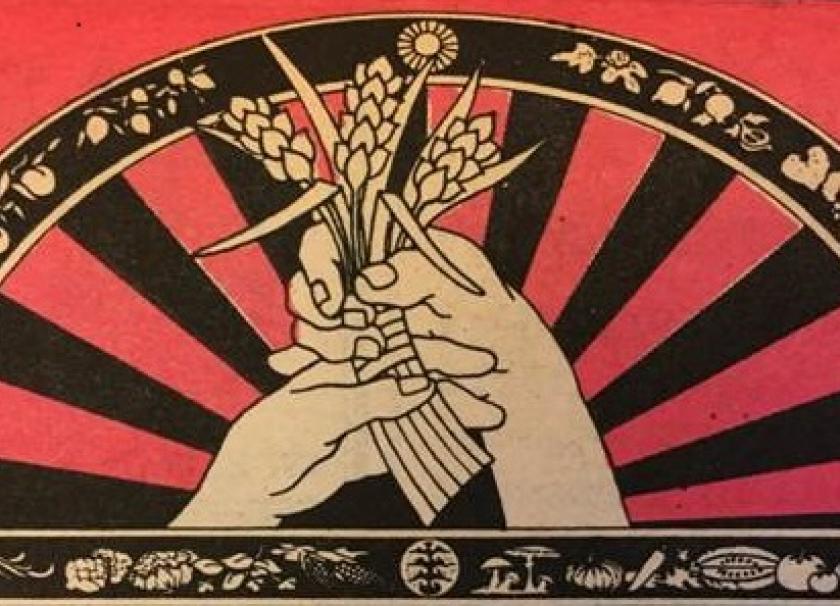
A New Look
By Laura Pfister, Media Coordinator
For 45 years we’ve been loving local and fostering community. Throughout our almost half a century history, our identity and logo has gone through many iterations.
Some of you might remember the logo above from our newsletter in the early 1980s.
As we’ve done multiple times throughout our history, it’s time to refresh our brand and launch a beautiful, new logo to take us into the next decade.

Turkey and Sweet Potato Chili
Turkey and Sweet Potato Chili is one of my favorite Co+op Basics recipes. It is full of flavor, color and shatters the myth that a healthy meal has to cost a fortune and take all day to prepare. This recipe is also a clever way to use sweet potatoes, which are not only tasty but high in fiber and vitamin A.
Looking to Save Money at the Co-op?
By Laura Pfister, Media Coordinator
We hear from time to time that people feel the Co-op is higher priced than other stores. In the past, we may have earned this perception. But not anymore. We took a long, hard look at ourselves and we talked with other Co-ops across the country. Together, we are pooling our resources to bring you organic, household staples at everyday competitive, low prices. Welcome to Co+op Basics.

45 Years Strong
On Valentine’s Day, the Ashland Food Co-op turns 45 years old.
It’s hard to imagine we’ve been providing healthy, organic food to the Rogue Valley for almost half a century. From our humble beginnings as the Ashland Community Food Store to now a thriving Co-op with over 10,000 owners, it has been an honor to serve this community.
Let’s take a brief stroll down memory lane and see how far we’ve come in 45 years.

Saving Paper One Coupon at a Time
To further our sustainability efforts and to serve you better, we began offering Electronic Owner Coupons this month at the register.
No more forgetting to bring your owner coupons. No more waiting for your newsletter to arrive. Cashiers will simply ask if you want to use your owner coupons when you check out.
A few key points to remember:
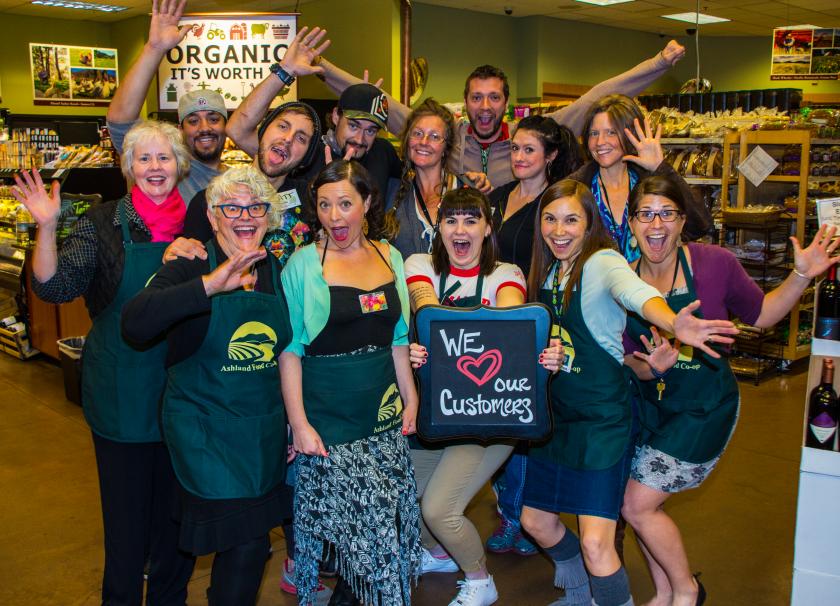
Thank YOU For a Wonderful Year!
2016 had many notable moments. We hosted many successful family friendly events, added 150 more solar panels to our roof, and earned 25% of our sales for local products. We proudly donated over $24,000 to area nonprofits through our Community Grants program. We welcomed 482 new owners and averaged 3,500 daily transactions.
Whew! And that is just a small sample.

Give Local
The food holiday season has finally arrived. This time of year is by far our most favorite. We’ve been dreaming of gingerbread cookies, pumpkin pie, mashed potatoes, turkey (or tofurky if that’s your fancy) and eggnog for months.
But beyond the holiday feasts, we love this time of year for another reason. It’s the season of giving. Amidst the shopping frenzies, family gatherings, and parties, giving back often becomes an afterthought.
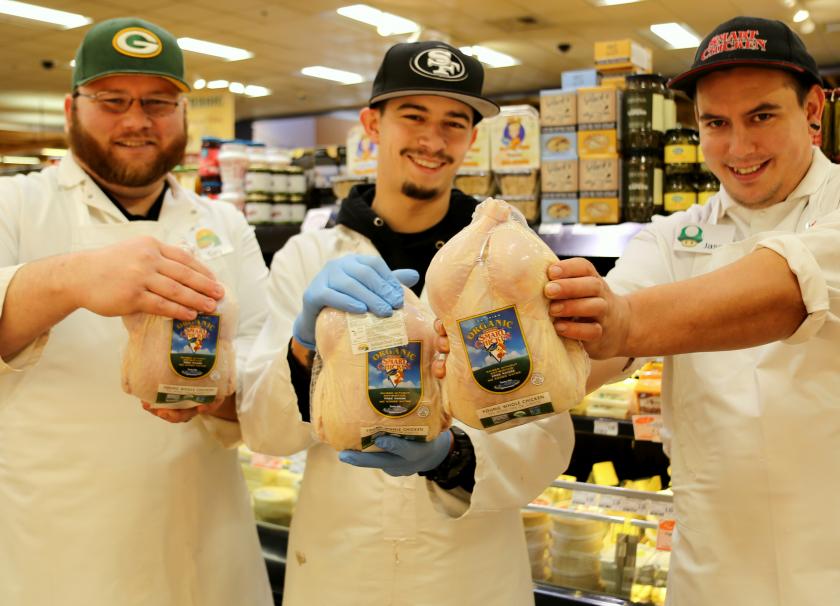
Happy Thanks-chicken!
We know, we know, November is all about turkey. But let us not forget the other, other white meat this holiday season. Chicken. This poultry meat often gets the spotlight, but during the month of November it is well deserved. Why? Because all month long, every time you purchase a Smart Chicken® product at the Co-op you help feed a hungry family in the Rogue Valley.
Here’s how it works:
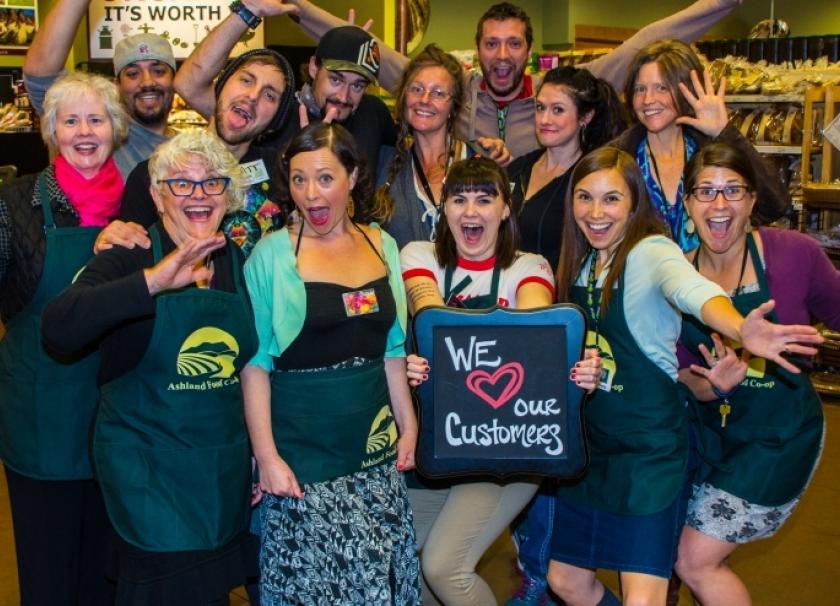
Co-ops Grow Communities
Co-ops around the world share a set of guiding principles including “cooperation among cooperatives,” and “concern for community.” We take these principles to heart.
When you shop at the Co-op, you aren’t just buying groceries. You are supporting a business that cares about people and contributes to a livable, sustainable Rogue Valley.
Did you know?
-
In 2015, we donated over $24,000 to area nonprofits.
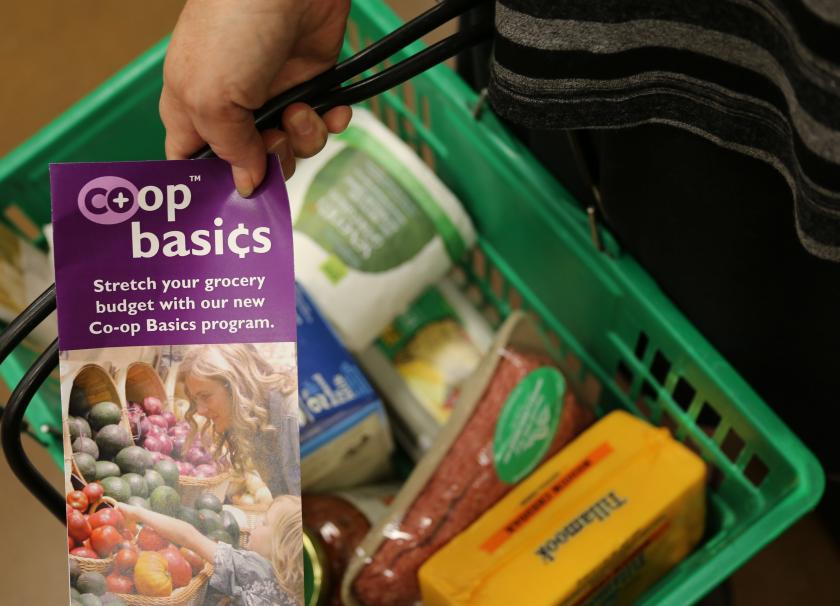
Feed an (Italian) army with Co+op Basics
My Italian Grandmother’s heart swells every time she sees my well-stocked pantry. I am prepared to feed an army at a moment’s notice, and sometimes that actually happens with my big family. But what my Grandma doesn’t know is how much I save by stocking my pantry with Co+op Basics products.
We Love Local
We take pride in supporting local farmers, producers, vendors and vintners. When we say local, we mean local. At some grocery stores, the word local gets thrown around like the word “natural,” ambiguously and with a broad definition.
But local means something to us. A definition we take meticulous pride in.
Local adjective
Any food or product grown, produced or made within 200 miles.
Let’s use it in a sentence. The Ashland Food Co-op supports an average of 250 local companies.

